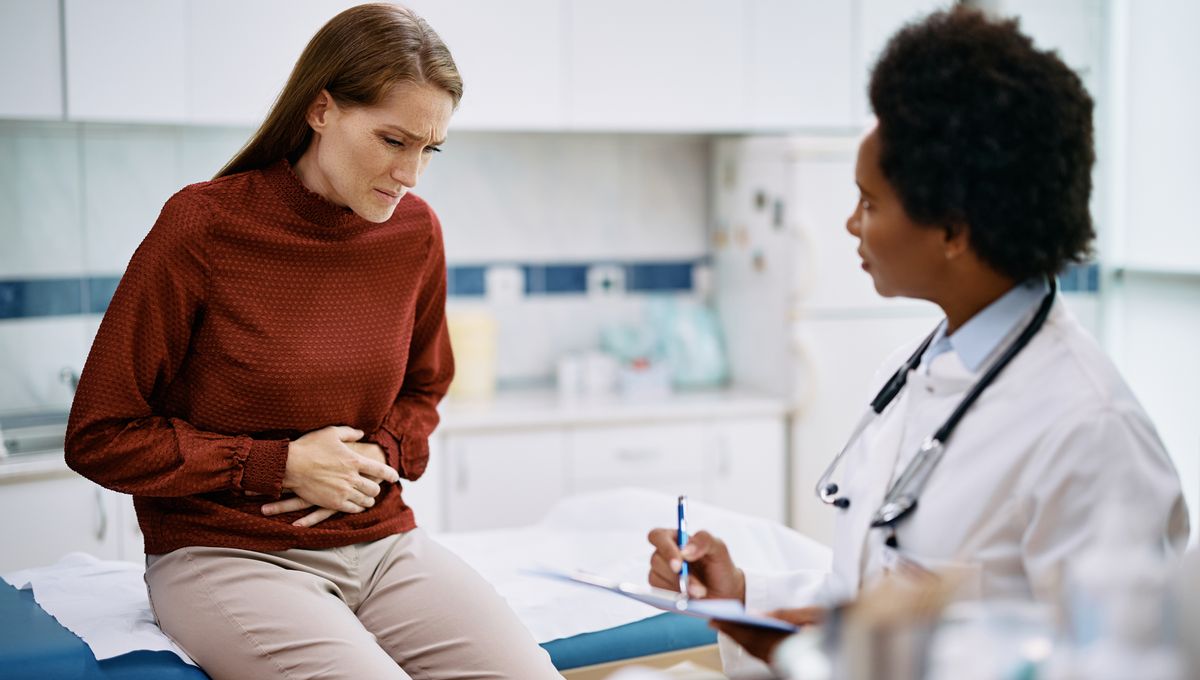
Patients with endometriosis around the world are still being given controversial advice to “treat” their condition by getting pregnant, despite a lack of evidence that it actually works, new data reveals. The survey of over 3,000 patients with a medical diagnosis of endometriosis was run by a team from the University of Adelaide, the University of Sydney, and the charity EndoActive.
Endometriosis is not a rare condition – the World Health Organization estimates that it affects around 10 percent of all females of reproductive age. Despite its prevalence, however, and as we have unfortunately seen so frequently when it comes to female reproductive health, a veil of misinformation and disbelief tends to surround the condition.
In cases of endometriosis, the tissue that normally forms the lining of the womb, which is shed during a menstrual period, grows around other organs in the body. Symptoms vary greatly depending on the location and extent of the abnormal tissue growth, but typically include extremely painful periods, chronic pelvic pain, pain during sex, and bowel issues. Endometriosis can also lead to infertility.
According to the authors of this new study, even with these issues that can negatively impact quality of life, diagnosis is delayed by an average of over six years.
In recent times, more research into the condition has started to emerge, including new insights into the possible causes. But there’s no cure as yet, and the latest research shows how patients who may have waited years for a diagnosis are sometimes being given medical advice with no evidence to support it.
The team surveyed 3,347 people with a clinical diagnosis of endometriosis, asking about their patient experiences. Over half of them (1,892) revealed that they had been advised to try and get pregnant, with 36 percent of these being told that it would cure their condition.
In 90 percent of these cases, these recommendations were given by a healthcare professional, such as a gynecologist.
“Pregnancy or having a baby isn’t a treatment for endometriosis and this advice from health professionals can have negative impacts on those who receive it,” said co-author and fertility expert Professor Louise Hull in a statement.
“While a third of the respondents felt the advice was appropriate given their situation at the time, many other women in this survey reported feeling too young to have a baby and felt stressed and pressured after being given this inappropriate albeit well-intentioned advice.”
Some of the survey responses documented in the authors’ paper, divided into seven broad themes, give an insight into the impact that this advice can have on patients.
Some respondents said they already knew that pregnancy was not an evidence-based treatment for endometriosis, or rejected the advice because it was unsuitable. “I was 13. It wasn’t appropriate,” said one patient. “As bad as I felt I knew in my heart I wouldn’t be well enough to take care of a baby. I could barely walk [two and a half] weeks out of the month,” said another.
Others took the advice to heart, which for some had a negative effect on their mental health. “I became obsessed with babies, pregnant women, getting pregnant, the thought that I would never be able to give birth to my own children,” read one response, while another confided, “It was a nightmare for me and something that impacted me greatly on an emotional level.”
Some of the patients also described the effect it had on their relationships: “It ended up ruining my relationship as I felt a huge pressure to have kids young and my partner couldn’t understand the intense conversation at a young age.”
The researchers are now calling for better education about endometriosis treatment among healthcare providers.
Sylvia Freedman, study co-author and co-founder of EndoActive, said, “EndoActive supports health professionals providing fertility advice in appropriate circumstances particularly as endo may impact fertility. However, pregnancy advice, especially in relation to curing or treating this condition is inappropriate because babies are not treatment options and the advice is not evidence-based.”
The study is published in the journal BMC Women’s Health.
Source Link: Get Pregnant To Treat Endometriosis, Patients Told, Despite No Evidence It Works